As an Amazon Associate I earn from qualifying purchases. This post may contain affiliate links (with exclusive offers) which means I may receive a small commission for purchases made through these links.
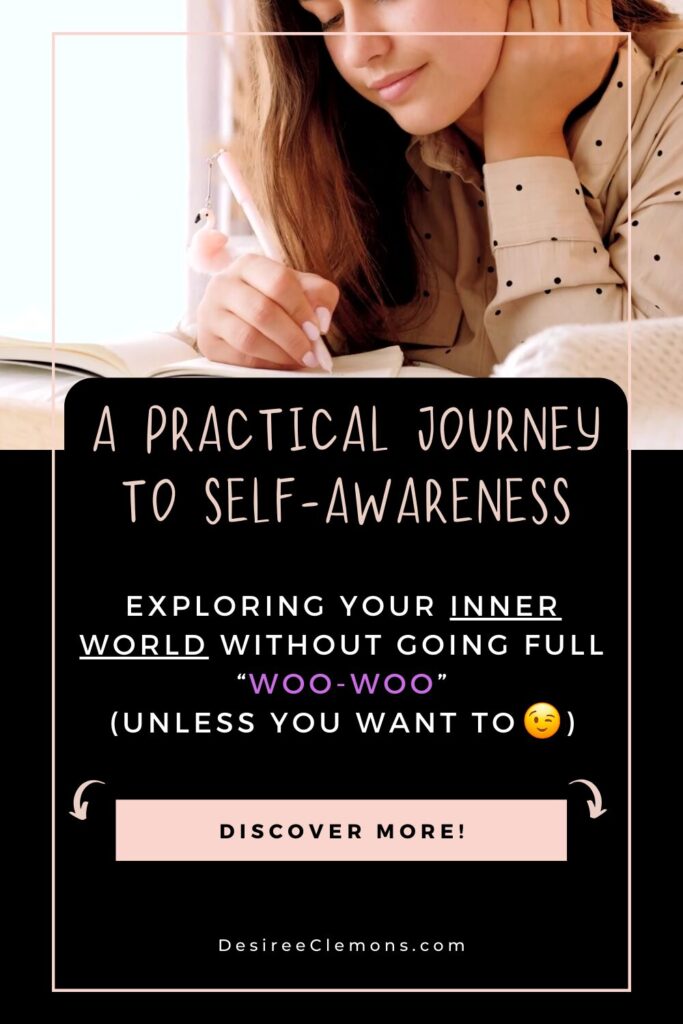
Hello,
Can I ask you a deep question?
Do you ever feel like you’re life is on autopilot? Like you’re just breezing through the day doing the same shit?
You wake up, go to work, eat some food, come home, scroll social media, go to sleep, wake up, and repeat.
And somewhere in between, you can’t help but wonder: Is this it? Is this the grand adventure called life?
Spoiler alert: It’s not!
A whole inner universe is waiting to be explored, and guess what? You’re the astronaut in this analogy.
And no, I am not going into any woo-woo astrology in this post, Although if you’re interested in that read all about Human Design here.
Rather, I am going to keep it light and practical.
This guide isn’t your typical self-help nonsense that promises enlightenment if you just meditate on a mountaintop for seven years.
Nope. It’s a down-to-earth, let’s-figure-this-out-together kind of deal so that you come out the other side with a better understanding of the person staring back at you in the mirror.
Exploring Your Inner World Without Going Full “Woo-Woo”
Who looks outside dreams; who looks inside awakes.
Carl Jung
First off, let’s set the record straight: exploring your inner world doesn’t require you to light incense, chant mantras (unless that’s your jam), or become a yoga master overnight.
It’s about getting real with yourself, questioning your motives and desires, and understanding why you do the things you do.
And yes, it’s okay to laugh at yourself along the way. Heaven knows, that if we can’t find humor in our existential crises, we’re really in trouble. (full disclaimer, we go deep here, but dont worry we also prioritize fun )
Subscribe to the blog so you’re notified FIRST when a NEW and enlightening article is fresh off the press!
It’s like having me as your personal inbox coach that motivates you to keep exploring your authentic self so that you reach a higher quality of life!
10 Little-Known Benefits of Self-Awareness
Self-awareness is an ongoing process that requires some patience and dedication. It may involve confronting uncomfortable truths about yourself or challenging long-held beliefs.
However, by exploring your inner world and embracing ALL aspects of yourself ( both light and shadow) you develop a deeper sense of authenticity and empowerment.
Here are some secrets to the benefits of increasing your self-awareness that I’ve learned from pursuing my Masters’ in Psychology:
- 1. Avoiding awkward situations: “Knowing yourself means you’re less likely to accidentally walk into a room with your fly down. It’s the little things that count, right?”
- 2. Better decision-making skills: “When you’re self-aware, you can trust your gut instincts and make choices that align with your values. No more second-guessing yourself!”
- 3. Improved relationships: “By understanding your own emotions and triggers, you can communicate more effectively and build stronger connections with others.”
- 4. Increased empathy: “Self-awareness helps you see things from other people’s perspectives, making you a better friend, partner, or coworker.”
- 5. Stress management: “When you know what stresses you out, you can proactively take steps to avoid or cope with those triggers before they overwhelm you.”
- 6. Boosted creativity: “Being in tune with your thoughts and feelings allows for more creative thinking and problem-solving. Who knows what brilliant ideas might come up when you’re self-aware?”
- 7. Enhanced resilience: “With self-awareness comes the ability to bounce back from setbacks and challenges more quickly. You’ll be like a rubber band – flexible and tough.”
- 8. Healthier habits: “Understanding your behaviors and motivations makes it easier to break bad habits and establish healthier routines that stick.”
- 9. Greater authenticity: “When you’re true to yourself, others will be drawn to your genuine nature and feel comfortable being themselves around you too.”
- 10. Overall happiness: “Self-awareness leads to greater self-acceptance and contentment with who you are. As Oscar Wilde once said, ‘Be yourself; everyone else is already taken.'”
Imagine your mind as the final frontier. There are galaxies of thoughts, meteor showers of feelings, and black holes of memories (especially those cringe-worthy high school moments).
Navigating this inner space means taking a closer look at these elements, understanding their impact on your daily life, and maybe learning to steer your mental ship a little better.
No, you don’t need an actual map (though, if you’re into journaling, that could be pretty handy). Check out this article here that explains How To Journal For Beginners.
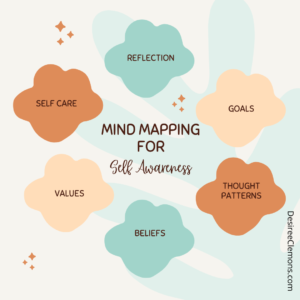
Navigating your mental landscape is like going on a thrilling adventure through the maze of your thoughts and emotions. It’s like exploring the hidden corners of your mind to uncover truths about yourself that you never knew existed. This journey of self-awareness is crucial for personal growth and development, as it allows you to understand your strengths, weaknesses, desires, and fears.
By navigating your mental landscape, you can live in the present moment and truly connect with yourself. You can learn to recognize patterns in your thinking and behavior, identify triggers that cause certain reactions, and ultimately gain insight into what makes you tick. (and what makes you happy)
Of course, I wrote a blog post on psychology and happiness. (The research comes from positive psychology) To Increase Authentic Happiness read the article here.
Ok, Back to this article.
Think of exploring your mental landscape as embarking on a treasure hunt for self-discovery. Each thought or emotion you uncover is like finding a piece of the puzzle that makes up who you are. It’s an exciting journey filled with surprises, challenges, and moments of enlightenment.
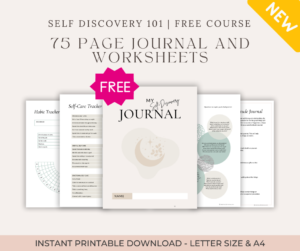
Get a FREE 75 Self-Discovery Journal by signing up for my Self-Discovery Course.
So grab your compass (or maybe just a journal) and start navigating your mental landscape today. Who knows what hidden gems you may find along the way? Happy adventuring!
Exploring Your Emotions (The Emotional Rollercoaster – Buckle Up!)
Now, let’s talk about feelings. Yes, those messy, complicated, and sometimes downright confusing signals that your brain and body send you.
Understanding your emotions is like having a dashboard in your spaceship. It tells you when you’re running low on fuel (hello, burnout) or when your shields are up (why yes, I do build walls around my heart, thanks for asking).
By tuning into these signals, you can manage your emotional energy more effectively and navigate life’s ups and downs with a bit more grace.
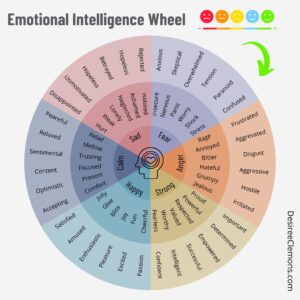
Looking for a Great Book on Mastering Your Emotions? Check out This Practical Guide to Overcome Negativity and Better Manage Your Feelings.
I support feeling all the feels around here. Here’s why.
Our emotions can be wild, ranging from the deep blues of sadness to the fiery reds of anger, and every shade in between. Recognizing and understanding these emotions is crucial for self-awareness and personal growth. Think of your emotions as signals and warnings telling you when to push forward or when to take a breather.
10 Proven Benefits of Emotional Awareness
1. Discovering your true self: “Exploring your emotions can help you uncover hidden aspects of yourself that you never knew existed.”
2. Enhancing empathy and understanding: By diving into your own feelings, you can better relate to others and understand their perspectives.
3. Improving communication skills: Understanding your emotions can help you express yourself more effectively and communicate your needs to others.
4. Stress relief: Acknowledging and processing your emotions can be a great way to release pent-up tension and reduce stress levels.
5. Boosting creativity: Embracing a wide range of emotions can inspire new ideas and fuel creative thinking.
6. Strengthening relationships: Being in touch with your emotions allows for deeper connections with others and fosters more meaningful relationships.
7. Building resilience: By facing challenging emotions head-on, you can develop the strength and resilience needed to navigate life’s ups and downs.
8. Personal growth: Exploring your emotions opens up opportunities for personal growth and self-improvement.
9. Increasing self-acceptance: Embracing all aspects of yourself, including both positive and negative emotions, promotes self-acceptance and self-love.
10. Finding joy in everyday moments: Connecting with your emotions can help you appreciate the simple pleasures in life and find joy in the little things.
Practical Tips When Starting Your Inner World Exploration
Embarking on this journey requires more than just a desire to explore; it needs actionable steps.
Here’s a practical, psychology-backed roadmap to start navigating your inner cosmos:
Start with Self-Reflection
Think of self-reflection like taking a mental selfie – you pause, look inward, and really think about your thoughts, emotions, and actions. It’s like hitting the pause button on life to check in with yourself.
- Journaling: I know I sound like a broken record but it really works! Begin by writing down your thoughts and feelings. Don’t censor yourself – let it all out on paper. This can help you recognize patterns in your thoughts and behaviors.
Utalize Question Prompts like “What made me happy today?” or “What situations make me feel uncomfortable, and why?” These can guide your introspection.
Practice Mindfulness and Meditation
Mindfulness is like the cool, chill friend that helps you become more self-aware. It’s all about tuning into the present moment and being aware of your thoughts, feelings, and sensations without judgment. When you practice mindfulness, you’re basically giving yourself a front-row seat to the movie of your own mind.
Meditation increases mindfulness and you can even start right now in under 1 minute. Listen or watch and notice a difference in your state.
Learning to Express Your Feelings
I know we already talked about emotions, but did you know that art is a powerful tool? Art can be more beneficial for raising your emotional intelligence because sometimes we don’t always have the words to express how we’re feeling.
Here is a short video of my drawing of a “repressed emotion.” (Hey I’m an art therapist in training.)
Practice Self-Compassion
Self-compassion is all about treating yourself with kindness and understanding, especially when things get tough or you make mistakes. It’s like giving yourself a big hug and saying, “Hey, it’s okay to mess up sometimes. You’re only human (or alien)!
Explore Your Interests and Passions
Exploring your interests and passions is like going on a treasure hunt to discover the gems that make you uniquely you. It’s all about diving into different activities, hobbies, and experiences to uncover what truly excites and fulfills you. By taking the time to explore these aspects of yourself, you can gain a deeper understanding of who you are, what drives you, and what brings you joy.
Final Words of Wisdom
Remember, self-awareness is not a destination; it’s a continuous voyage of discovery. And with every small step (or giant leap), you’re not just finding out more about yourself; you’re creating the person you want to become.
Ready to embark on more explorations? For a Limited Time Get a FREE 75 Self-Discovery Journal by signing up for my Self-Discovery Course.
Follow me on Youtube, (and my other social media platforms) and join an awesome community that enjoys exploring their inner world through creative, psychological, and spiritual ways.
Happy exploring, space cadet! The cosmos within you is vast and beautiful, filled with untold stories and undiscovered truths. What will you find on your journey?


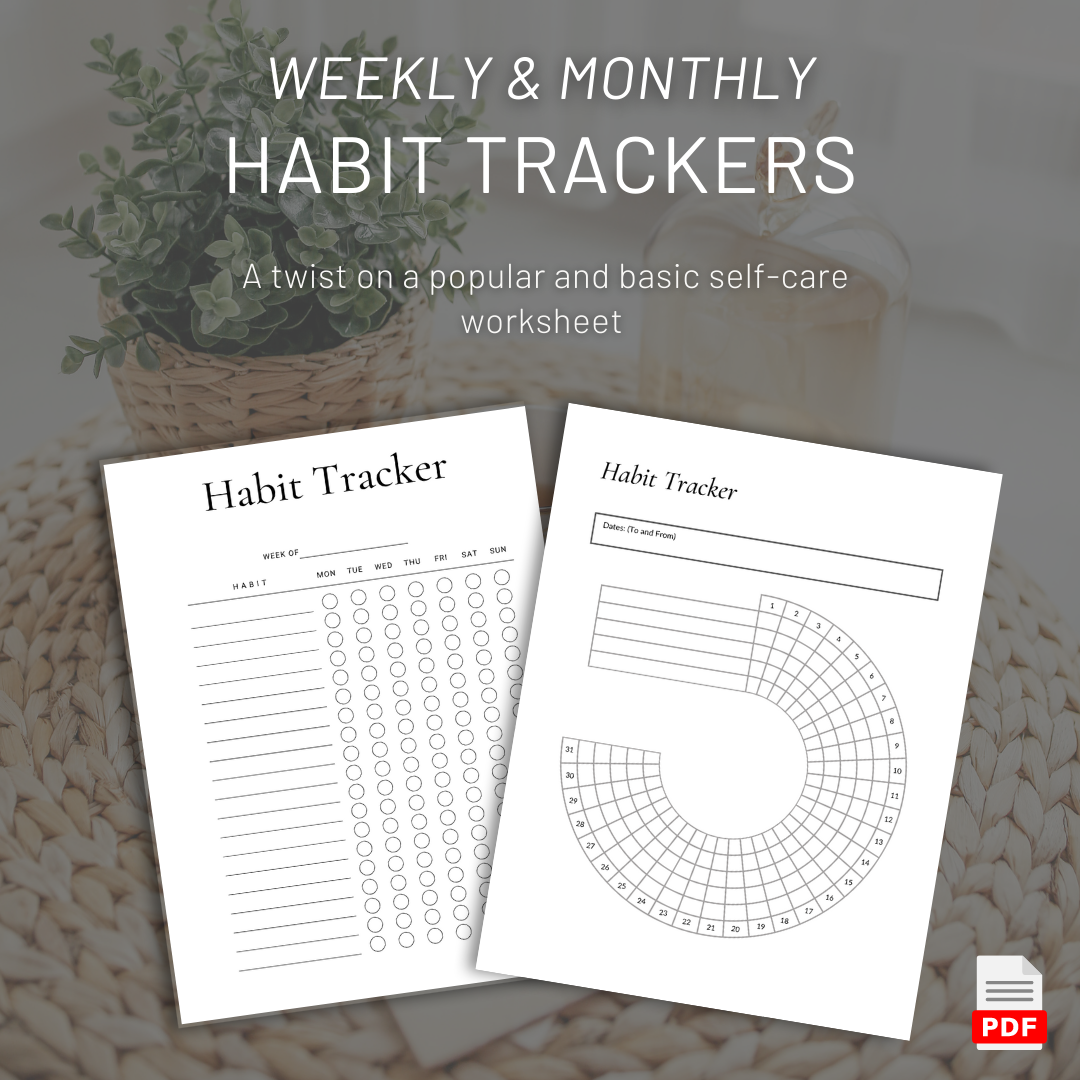
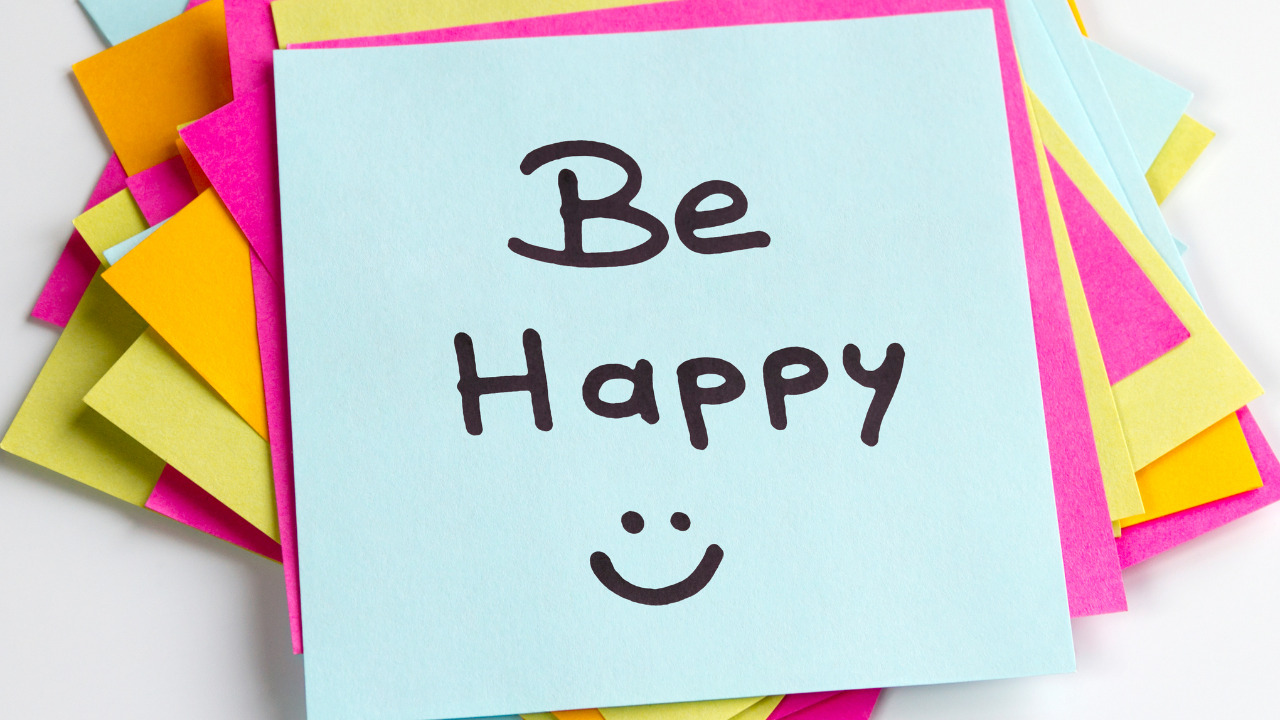


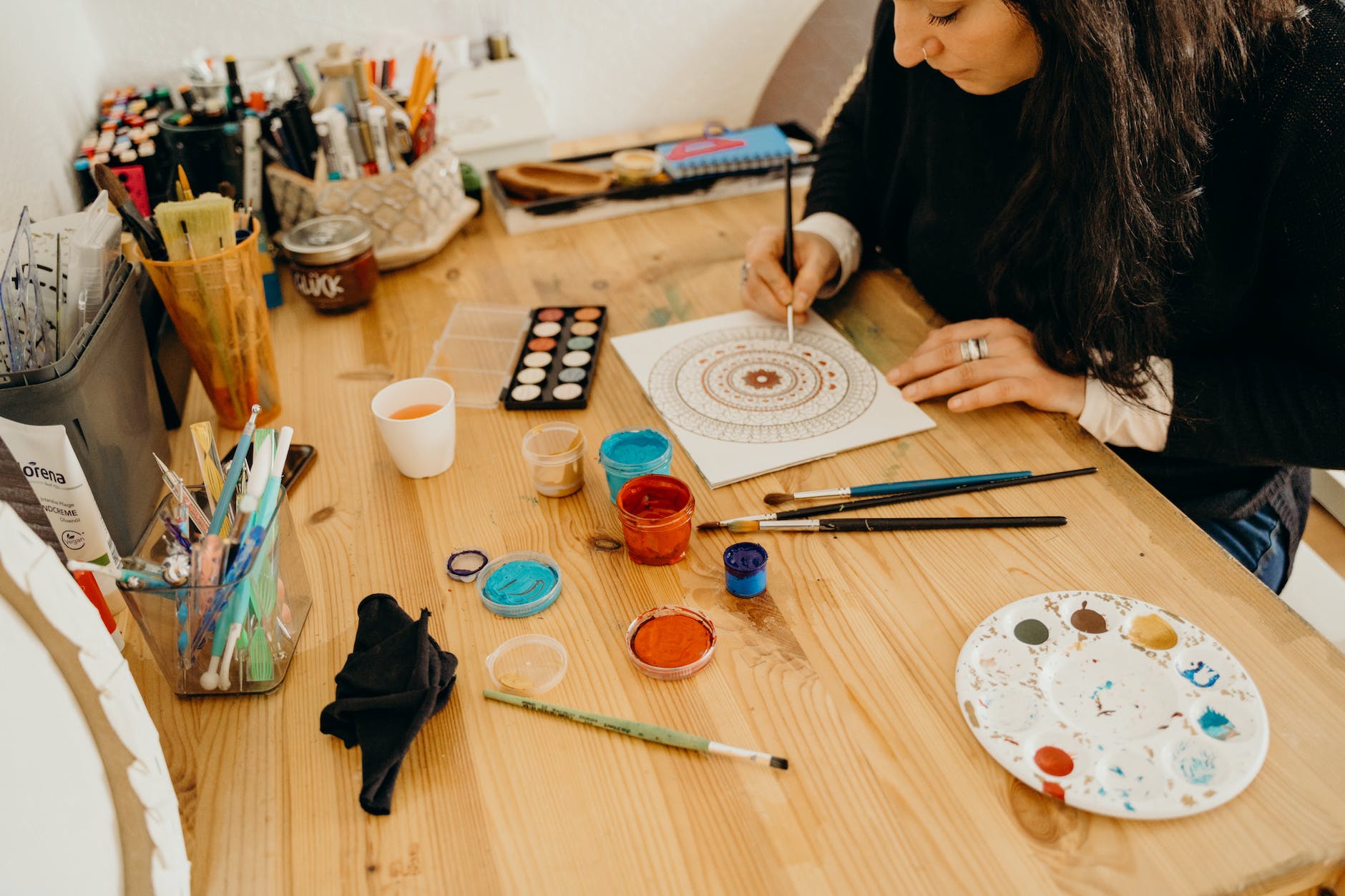

Great blog I agree so much, the last years I have really demonstrated how disconnected so many people are from their inner world, their inner navigation system. And have so little awareness of the self and even what is going on around them energetically.